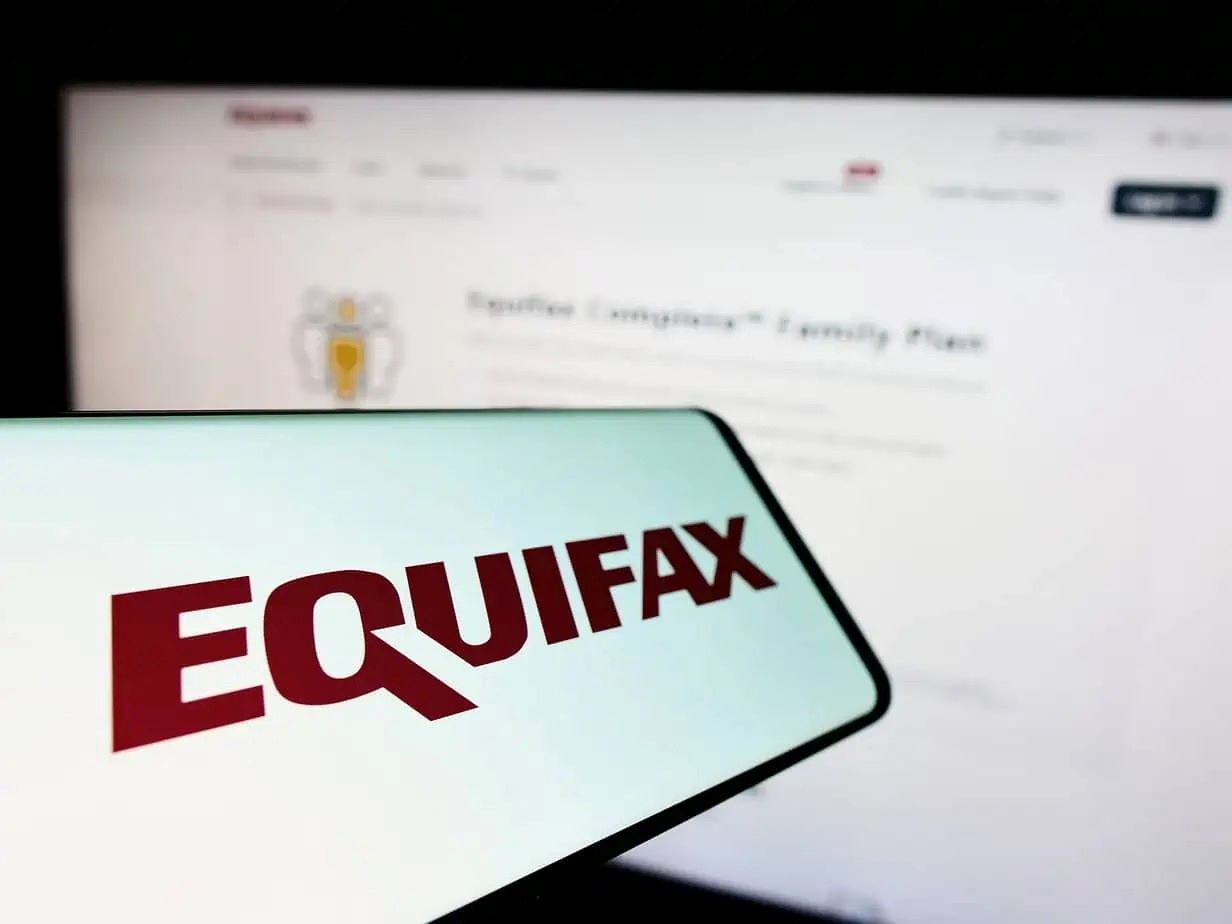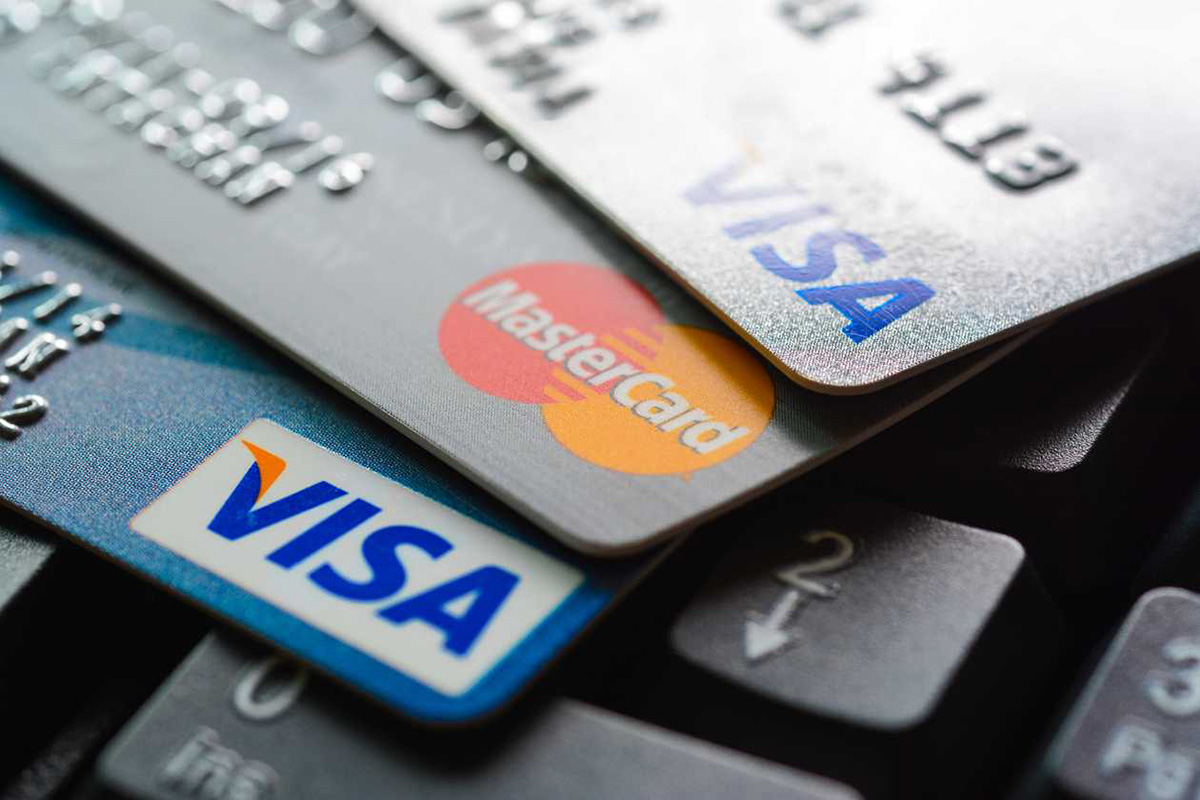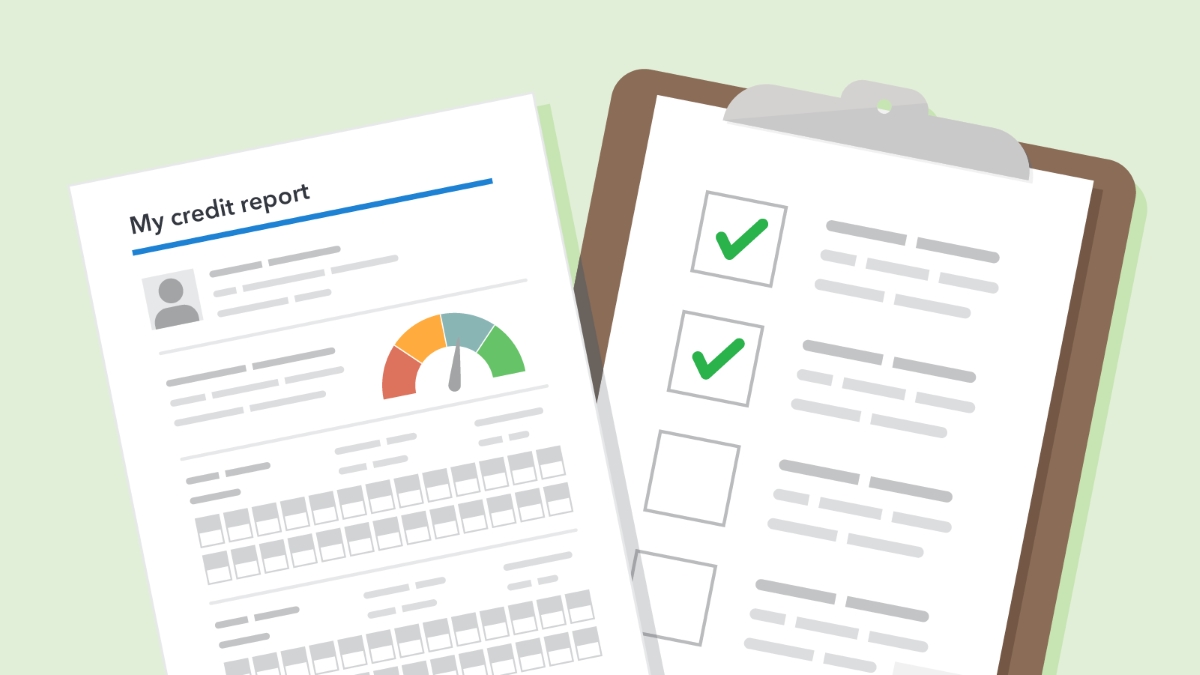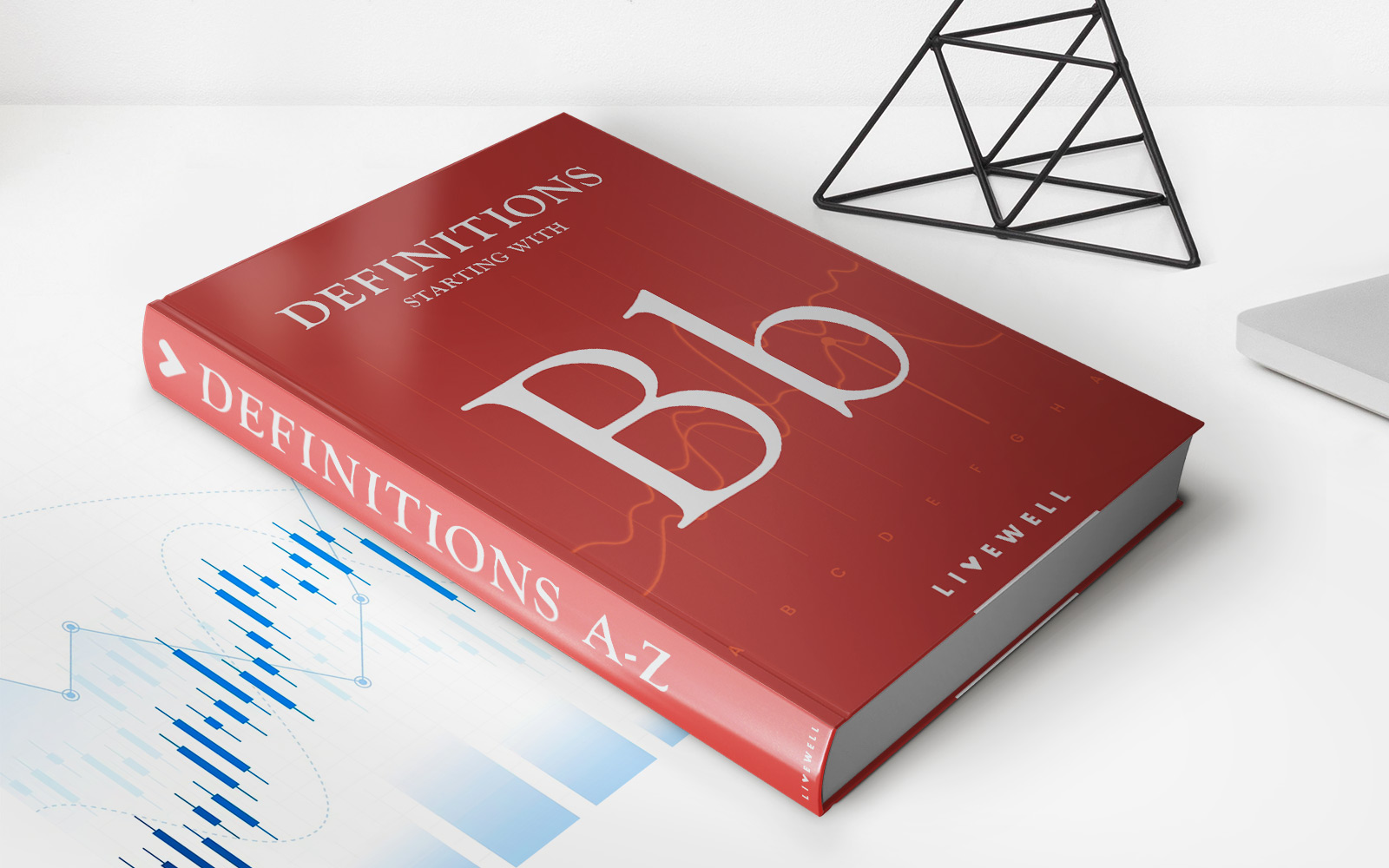

Finance
Which Credit Card Companies Use Equifax
Modified: February 21, 2024
Looking for credit card companies that rely on Equifax? Find out which finance companies use Equifax for credit scoring and approvals.
(Many of the links in this article redirect to a specific reviewed product. Your purchase of these products through affiliate links helps to generate commission for LiveWell, at no extra cost. Learn more)
Table of Contents
Introduction
Credit cards have become an essential financial tool for individuals and businesses alike. They offer convenient access to funds, flexibility in managing expenses, and rewards programs that can provide additional value. However, not all credit card companies are created equal, and understanding which credit card companies use Equifax, one of the major credit reporting agencies, can be a crucial factor when choosing the right credit card for your needs.
Equifax is a trusted provider of credit information and scoring, and many credit card companies rely on Equifax for assessing an individual’s creditworthiness when issuing credit cards. By working with Equifax, these companies gain access to comprehensive credit data, enabling them to make more informed decisions about credit card approvals, credit limits, and interest rates.
In this article, we will explore some of the major credit card companies that use Equifax to evaluate creditworthiness. Understanding which credit card companies rely on Equifax can help you choose a credit card that aligns with your financial goals and maximizes your chances of approval. Let’s dive into the details of these credit card providers.
American Express
American Express, also known as Amex, is one of the most well-known credit card companies in the world. They offer a wide range of credit card options catering to different needs and lifestyles. When it comes to credit assessment, American Express uses Equifax as one of the credit reporting agencies to evaluate an individual’s creditworthiness.
Equifax provides detailed credit history information to American Express, allowing them to assess an applicant’s credit score and determine their creditworthiness. This information helps American Express tailor credit card offers and set appropriate credit limits and interest rates.
Additionally, American Express uses Equifax to monitor and track an individual’s credit behavior over time. This allows them to make data-driven decisions on things like credit limit increases, and it helps them identify potential fraud or suspicious activity on cardholder accounts.
Amex’s collaboration with Equifax ensures that they have access to accurate and up-to-date credit information, enabling them to make informed decisions when offering credit cards to individuals. This partnership also helps applicants determine their eligibility for specific American Express credit cards based on their credit profiles.
It’s important to note that while American Express relies on Equifax for credit assessment, they also consider other factors such as income, employment status, and existing relationships with the company. This holistic approach helps American Express evaluate an individual’s overall financial stability and provides a comprehensive view of their creditworthiness.
Whether you’re looking for a travel rewards card, a cashback card, or a card with premium benefits, American Express offers a variety of options to suit different needs. By partnering with Equifax, they ensure that they can make accurate and responsible decisions when it comes to offering credit to individuals.
If you’re considering applying for an American Express credit card, it’s essential to maintain a good credit history and keep an eye on your Equifax credit report to ensure that the information is accurate and favorable. This will increase your chances of approval and potentially qualify you for better credit card offers and benefits.
Bank of America
Bank of America is one of the largest financial institutions in the United States, offering a wide range of banking products and services, including credit cards. When assessing creditworthiness for their credit card applications, Bank of America relies on credit information from Equifax, one of the major credit reporting agencies.
Equifax provides Bank of America with valuable credit data, allowing them to evaluate an individual’s credit history, credit score, and overall creditworthiness. This information is crucial in determining the applicant’s eligibility for a Bank of America credit card, as well as setting credit limits and interest rates.
Bank of America’s partnership with Equifax allows them to make informed decisions when it comes to credit approvals and credit card offers. By accessing comprehensive credit information, they can assess an individual’s financial stability and ability to manage credit responsibly.
Furthermore, Bank of America utilizes Equifax’s credit data to monitor existing credit card accounts and identify any potential risks or fraudulent activities. This proactive approach helps protect the interests of both the cardholder and the bank, ensuring a secure and reliable credit card experience.
It’s worth noting that while Bank of America considers Equifax’s credit information, they also take into account other factors such as income, employment history, and existing banking relationships with the institution. This well-rounded evaluation helps Bank of America make fair and accurate decisions when extending credit to individuals.
Bank of America provides a diverse range of credit card options, catering to various needs and preferences. Whether you’re looking for a card with cashback rewards, travel benefits, or low-interest rates, Bank of America’s collaboration with Equifax ensures that they can make responsible credit decisions that align with their customers’ financial goals.
If you’re considering applying for a Bank of America credit card, it’s important to maintain a good credit history and regularly review your Equifax credit report. This will help you identify any inaccuracies or issues that may need to be addressed before submitting your application. By doing so, you can increase your chances of approval and potentially qualify for more favorable credit terms and benefits.
Capital One
Capital One is a prominent credit card issuer known for its wide range of credit card offerings, including rewards cards, secured cards, and business cards. When evaluating credit card applications, Capital One relies on Equifax, one of the major credit reporting agencies, to assess an individual’s creditworthiness.
By partnering with Equifax, Capital One gains access to comprehensive credit data, including an individual’s credit history, credit score, and payment history. This information is crucial in determining an applicant’s eligibility for a Capital One credit card and establishing credit limits and interest rates.
Capital One values the accuracy and reliability of Equifax’s credit information, which helps them make data-driven decisions when evaluating credit applications. Equifax’s credit data allows Capital One to assess an individual’s financial responsibility and their ability to manage credit effectively.
In addition to credit assessment, Capital One also utilizes Equifax’s credit data to monitor and track their customers’ credit behavior over time. This helps them identify potential risks and manage credit limits, ensuring a responsible and secure credit card experience.
It’s important to note that Capital One takes a holistic approach to credit evaluation, considering factors beyond Equifax’s credit data. These factors may include income, employment status, and the overall financial stability of the applicant. This comprehensive assessment helps Capital One make fair and accurate decisions when issuing credit cards.
Capital One offers an array of credit cards designed to meet different needs and preferences. Whether you’re looking for a card with travel rewards, cashback benefits, or low introductory APRs, Capital One’s partnership with Equifax ensures that they can make informed credit decisions that align with their customers’ financial goals.
If you’re interested in applying for a Capital One credit card, it’s important to maintain a good credit history and regularly review your Equifax credit report. This will allow you to address any discrepancies or issues before submitting your application, increasing your chances of approval and potentially qualifying you for better credit card terms and benefits.
Chase
Chase is a leading credit card issuer renowned for its diverse range of credit cards catering to various needs and lifestyles. When assessing creditworthiness for their credit cards, Chase relies on Equifax, one of the major credit reporting agencies, to evaluate an individual’s creditworthiness and determine their eligibility for a Chase credit card.
Equifax provides Chase with crucial credit information, including credit history, credit scores, and payment patterns. This data allows Chase to make informed credit decisions, such as setting credit limits, determining interest rates, and tailoring credit card offers to suit individual financial situations.
By using Equifax’s credit data, Chase gains a comprehensive understanding of an individual’s financial responsibility and their ability to manage credit effectively. This information helps them assess the risk associated with extending credit and ensures responsible lending practices.
Chase also utilizes Equifax’s credit data to monitor credit card accounts and identify potential risks or fraudulent activities. This proactive approach safeguards the interests of both Chase and its customers, providing a secure and reliable credit card experience.
While Equifax plays a significant role in credit assessment, Chase considers other factors as well, such as income, employment history, and existing relationships with the bank. This holistic evaluation helps Chase make fair and accurate decisions when evaluating credit card applications.
With a wide variety of credit card options available, Chase caters to different preferences, including travel rewards, cashback benefits, and low introductory APRs. By partnering with Equifax, Chase ensures that they can offer credit cards that align with their customers’ financial needs and goals.
If you’re considering applying for a Chase credit card, it’s essential to maintain a good credit history and regularly review your Equifax credit report. This allows you to address any errors or discrepancies before submitting your application, increasing your chances of approval and potentially qualifying you for better credit card terms and benefits.
Citibank
Citibank is a globally recognized financial institution offering a wide range of banking and credit card services. When evaluating credit card applications, Citibank relies on Equifax, one of the major credit reporting agencies, to assess an individual’s creditworthiness.
Equifax provides Citibank with detailed credit information, including credit history, credit scores, and payment patterns. This information is essential in determining an applicant’s eligibility for a Citibank credit card and helps Citibank set appropriate credit limits and interest rates.
By partnering with Equifax, Citibank gains access to comprehensive and accurate credit data, enabling them to make informed decisions when evaluating credit applications. Equifax’s credit information helps Citibank evaluate an individual’s financial responsibility and their ability to handle credit effectively.
Citibank also uses Equifax’s credit data to monitor and track customers’ credit behavior over time. This proactive approach allows them to manage credit limits, identify potential risks, and ensure a secure and reliable credit card experience.
While Equifax’s credit data is essential, Citibank takes a holistic approach to credit evaluation, considering other factors such as income, employment status, and existing banking relationships. This comprehensive assessment helps Citibank make fair and accurate decisions when issuing credit cards.
Citibank offers a variety of credit card options, including rewards cards, cashback cards, and travel cards. By collaborating with Equifax, Citibank ensures that they can make responsible and tailored credit decisions based on their customers’ financial needs and goals.
If you’re interested in applying for a Citibank credit card, it’s important to maintain a good credit history and regularly review your Equifax credit report. This allows you to address any inaccuracies or discrepancies before submitting your application, increasing your chances of approval and potentially qualifying you for better credit card terms and benefits.
Discover
Discover is a prominent credit card issuer known for its innovative rewards programs and customer-friendly features. When assessing creditworthiness for their credit cards, Discover relies on Equifax, one of the major credit reporting agencies, to evaluate an individual’s credit history and determine their eligibility for a Discover credit card.
Equifax provides Discover with comprehensive credit data, including credit scores, payment history, and credit utilization. This information allows Discover to make informed decisions when evaluating credit applications and setting appropriate credit limits and interest rates.
By partnering with Equifax, Discover ensures that they have access to accurate and up-to-date credit information. This helps them assess an individual’s financial responsibility, creditworthiness, and ability to manage credit effectively.
Discover also utilizes Equifax’s credit data to monitor credit card accounts and identify any potential risks or fraudulent activities. This proactive approach helps protect both Discover and its customers, providing a secure and reliable credit card experience.
While Equifax’s credit data is crucial, Discover considers other factors as well, such as income, employment status, and existing banking relationships. This holistic approach allows Discover to make fair and accurate decisions when issuing credit cards.
Discover offers a variety of credit cards, including cashback cards, travel cards, and student cards. By collaborating with Equifax, Discover ensures that they can make responsible credit decisions based on accurate and comprehensive credit data.
If you’re considering applying for a Discover credit card, it’s important to maintain a good credit history and regularly review your Equifax credit report. This allows you to identify any errors or discrepancies that need to be addressed before submitting your application. By doing so, you can increase your chances of approval and potentially qualify for better credit card terms and benefits.
U.S. Bank
U.S. Bank is a well-established financial institution that offers a variety of banking products and credit cards. When evaluating credit card applications, U.S. Bank relies on Equifax, one of the major credit reporting agencies, to assess an individual’s creditworthiness.
Equifax provides U.S. Bank with important credit information, including credit history, credit scores, and payment patterns. This information allows U.S. Bank to make informed decisions when reviewing credit applications, setting credit limits, and determining interest rates.
By partnering with Equifax, U.S. Bank gains access to comprehensive credit data that helps them evaluate an individual’s financial stability and their ability to manage credit responsibly. Equifax’s credit data serves as a valuable tool in assessing an applicant’s creditworthiness.
In addition to credit assessment, U.S. Bank utilizes Equifax’s credit data to monitor existing credit card accounts for potential risks or fraudulent activities. This helps ensure the security and reliability of U.S. Bank’s credit card services.
While Equifax’s credit data is an important factor, U.S. Bank takes a holistic approach to evaluating creditworthiness. They consider other factors such as income, employment status, and existing relationships with the bank. This comprehensive assessment helps U.S. Bank make fair and accurate decisions when issuing credit cards to applicants.
U.S. Bank offers a range of credit cards, including cashback cards, rewards cards, and low-interest cards. By collaborating with Equifax, U.S. Bank can tailor their credit card offers to meet the diverse needs and preferences of their customers.
If you are considering applying for a U.S. Bank credit card, it is vital to maintain a good credit history and regularly review your Equifax credit report. This will allow you to address any discrepancies or errors before submitting your application, increasing your chances of approval and potentially qualifying you for better credit card terms and benefits.
Wells Fargo
Wells Fargo is a prominent banking institution that offers a wide range of financial services, including credit cards. When evaluating creditworthiness for their credit cards, Wells Fargo relies on Equifax, one of the major credit reporting agencies, to assess an individual’s credit history and determine their eligibility for a Wells Fargo credit card.
Equifax provides Wells Fargo with comprehensive credit data, including credit scores, payment history, and credit utilization. This information plays a crucial role in evaluating credit applications and assisting Wells Fargo in setting appropriate credit limits and interest rates.
By partnering with Equifax, Wells Fargo gains access to accurate and up-to-date credit information, allowing them to make informed credit decisions. Equifax’s credit data enables Wells Fargo to assess an applicant’s financial responsibility, creditworthiness, and ability to manage credit effectively.
Wells Fargo also utilizes Equifax’s credit data to monitor credit card accounts, identifying potential risks or fraudulent activities. This proactive approach helps protect both Wells Fargo and its customers, ensuring a secure and reliable credit card experience.
While Equifax’s credit data is significant, Wells Fargo considers other factors as well, such as income, employment status, and existing banking relationships. This holistic evaluation allows Wells Fargo to make fair and accurate decisions when issuing credit cards.
Whether you’re looking for a rewards card, a student card, or a card with low introductory APRs, Wells Fargo offers a variety of credit cards to suit different needs and preferences. By collaborating with Equifax, Wells Fargo ensures that they can make responsible credit decisions that align with their customers’ financial goals.
If you’re considering applying for a Wells Fargo credit card, it’s important to maintain a good credit history and regularly review your Equifax credit report. This will allow you to identify any errors or discrepancies that need to be addressed before submitting your application. By doing so, you can increase your chances of approval and potentially qualify for better credit card terms and benefits.
Conclusion
Understanding which credit card companies utilize Equifax as a credit reporting agency can be essential when choosing the right credit card. Equifax provides comprehensive credit data that enables credit card companies to assess an individual’s credit history, credit scores, and payment patterns. By partnering with Equifax, these credit card companies can make informed decisions on credit approvals, credit limits, and interest rates.
From American Express to Wells Fargo, a wide range of credit card companies rely on Equifax for credit assessment. Each company collaborates with Equifax to access accurate and up-to-date credit information, ensuring responsible lending practices and secure credit card experiences for their customers.
When applying for a credit card, it’s important to maintain a good credit history and regularly review your Equifax credit report to address any errors or discrepancies that may impact your creditworthiness. By doing so, you can increase your chances of approval and potentially qualify for credit cards with better terms and benefits.
Whether you’re looking for travel rewards, cashback benefits, or low-interest rates, understanding the credit card companies that utilize Equifax can help you choose a credit card that aligns with your financial goals and maximizes your chances of approval. Remember to consider other factors, such as income, employment status, and existing relationships with the credit card company, as they also play a role in credit assessment.
In conclusion, Equifax plays a crucial role in the credit evaluation process for many major credit card companies. By working with Equifax, these companies can make informed decisions about credit approvals and provide tailored credit card offers to meet the diverse needs of their customers.














